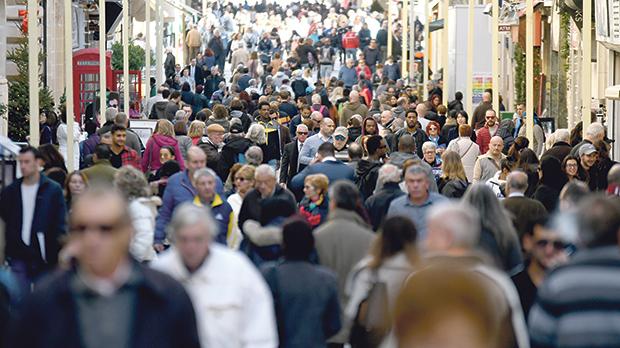As Prime Minister Robert Abela’s government hurriedly introduces policies to limit the number of foreign workers in Malta, the latest data shows they make up one-third of the labour force, with a fifth coming from outside the European Economic Area (EEA).
The Shift’s data analysis shows how, over the last decade, the percentage of migrant workers amid the 300,000-strong workforce increased from 10% in 2013 to almost 33% by the end of 2022.
The data, tabled by Finance Minister Clyde Caruana on Monday in response to a parliamentary question by opposition Nationalist Party MP Julie Zahra, comes amid concerns about an ageing workforce, government policy pushing low-skilled, low-paid jobs, and a still unregulated recruitment agency sector.
According to the data, by mid-2023, the government and Maltese businesses employed more than 100,000 foreign citizens, comprising 37,000 from the EEA and more than 67,000 third-country nationals (TCNs).
Caruana’s statistics show how most EEA workers are employed within the entertainment sector, which includes the online gambling industry.
Following the United Kingdom’s departure from the EU in 2020, workers from the country, which total around 5,000, are now considered third-country nationals.
Most other TCNs, meanwhile, are often exploited in their home countries for big sums of money, which they are then forced to pay off from low wages earned in Malta.
These workers, who often end up working illegally due to the delays of Maltese authorities, are mainly working in low-skill, low-pay jobs in transport, hospitality services and construction.
A breakdown of the data by nationality shows that some 13,000 workers hail from India, and more than 9,000 are from the Philippines. Nepalese, Serbian, Albanian and Colombian workers also feature prominently on the list.
The unfavourable working conditions are worsened by issues stemming from the cost of living and inflation.
Previously published data, which revealed that one-sixth of Malta’s full-time workforce is earning less than €1,000 per month, exacerbates concerns of a labour force coming increasingly close to the poverty line.
Recently, Abela promised to introduce several reforms in a populist move following surveys which showed Maltese public concern over the situation.
The measures included introducing a skills card, increasing application costs for TCNs by some €575, and increasing the financial entry requirements.
Rent laws, which have been abused for years to cram underpaid workers into apartments with squalid conditions, will also be amended through automation. Additionally, a licensing scheme for temping agencies that recruit overseas workers will also be introduced next year.
Employers and business representatives have said the changes must be introduced carefully, considering government policy, which thus far has enabled the mushrooming of “low-value jobs” in the first place.













In other words a new form of human trafficking.
The rich getting richer, the poor getting poorer.
This is certainly not what Malta and Maltese of goodwill deserve.
This is *exactly* what they deserve. They keep voting for more of it.
Citizens always get the government they deserve. The Maltese have ignored the concept of long-term strategic thinking and decisions in favor of cheques and having themselves or their loved ones employed by the government or one of their crony entities.
Thus, it is well-deserved actually. A normal, civilized country wouldn’t accept such low standards in public life. From both sides, mind you, as neither party is fit for purpose.
This is because Maltese people are not learning any skills, and therefore never produce money, and the rich are running out of people to take money from. If the government insists on ’employing’ everyone they run out of people to exploit and steal from. So bring in more. Malta is about to implode as PL voters run out of disposable income and realise the parasites that are leeching from them can be removed.
I was told today that, during a recent Jobsplus presentation, this Agency presented results on the labour force in Malta, which showed that 80% of the local labour force in the bracket 30 to 39 y.o. are EU and TCNs. The first struggle to enforce their rights under EU law, but the latter do not vote, have no pension rights and need to deal with immigration legislation.
The Shift, surely, could report about this via a FOI request to Jobsplus or check with the NSO?